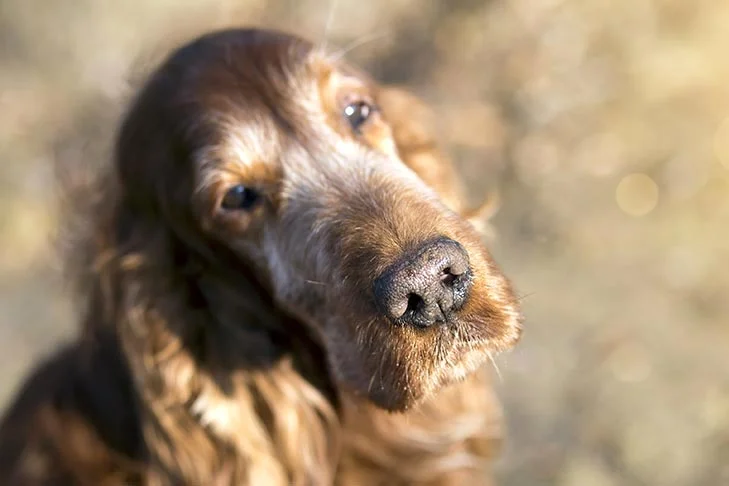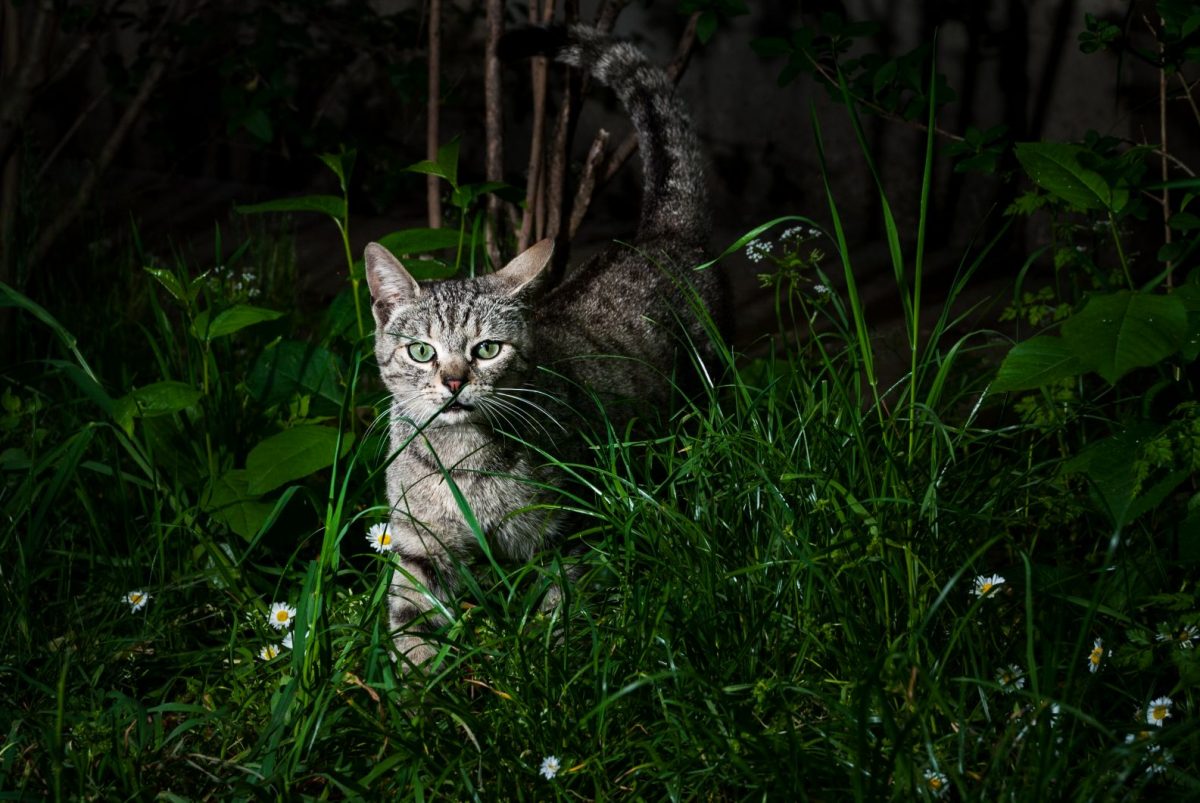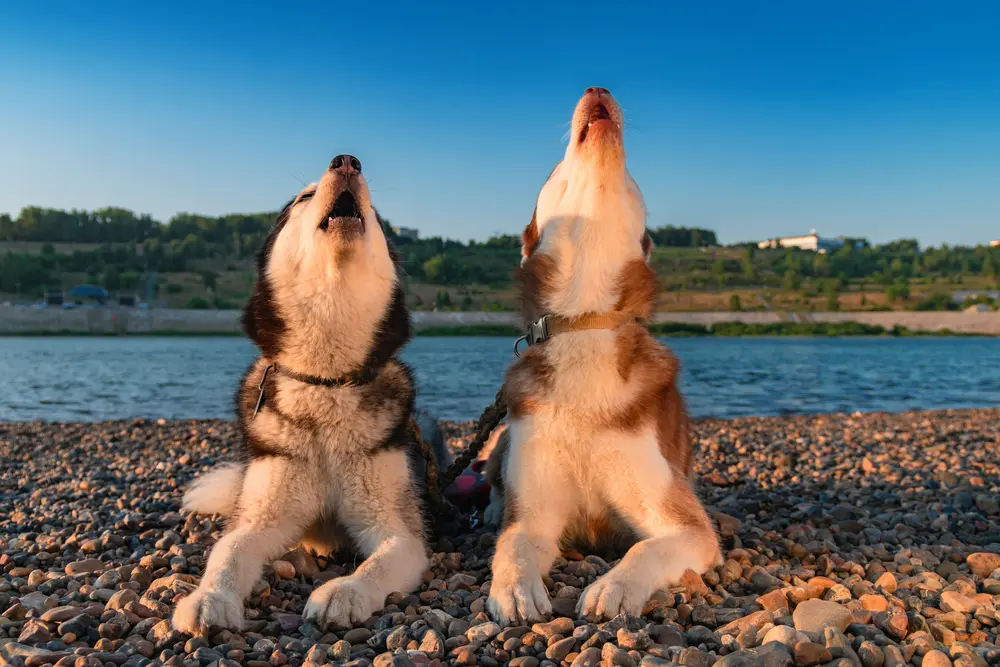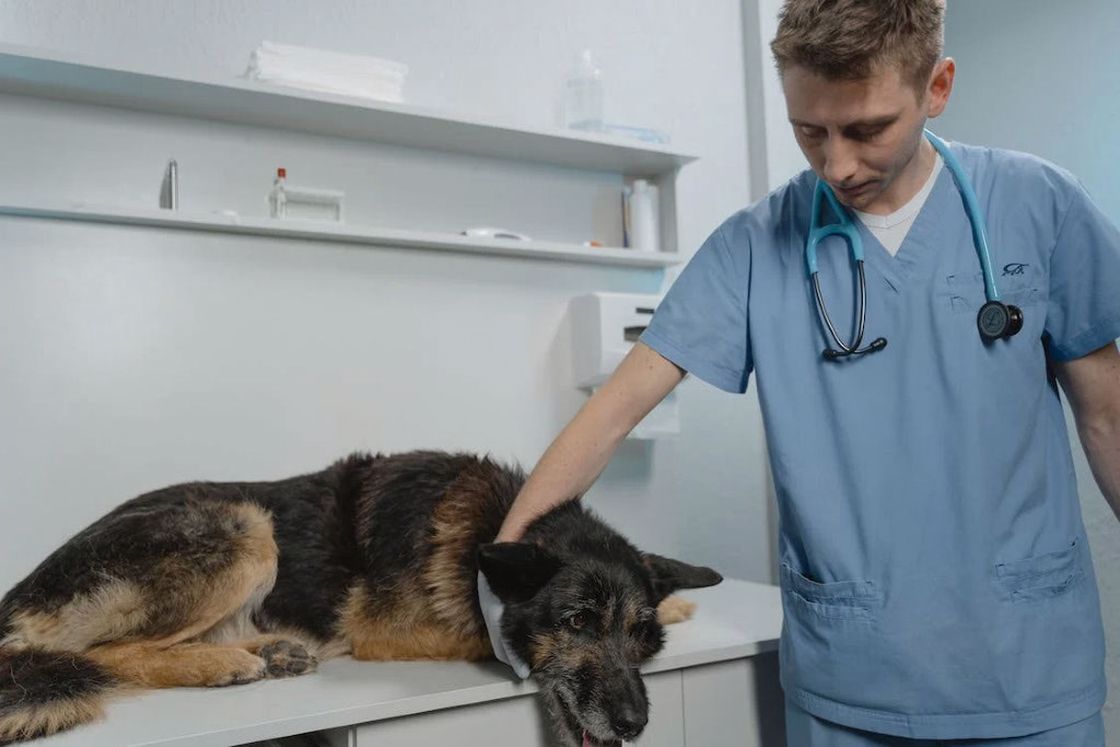When dogs sniff your face, it’s because they’re curious and want to learn about you. They might be looking for food smells or checking if you’re okay. It’s also their way of saying they’re happy to see you. If you react positively, they’ll do it more because they like it and want to connect with you.
In this intriguing journey, you’ll uncover the captivating reasons behind why your dog is so intent on sniffing your face.
Curiosity Reigns Supreme
Dogs explore their world primarily through their incredible sense of smell, which is 10,000 to 100,000 times more powerful than ours. With over 300 million smell receptors and brains dedicated to olfaction, dogs are natural sniffing machines. It’s their way of learning about you and your surroundings, like saying, “What’s going on in your world, human?”
The Food Detective
Food is a big motivator for dogs. They can detect what you’ve eaten even hours later, thanks to their super-sensitive noses. When it happens they might be hoping for a tasty treat or a share of whatever yummy food they detect.
Health Inspector Dog
Believe it or not, your dog can gather a lot of information about your health through your breath. Our breath can reveal details about our well-being, such as intestinal and lung health, due to gases and Volatile Organic Compounds (VOCs) produced by our bodies.
Also, dogs can even detect diseases like cancer, stomach ulcers, and changes in blood sugar levels. So, when your dog sniffs your breath, they may be checking on your health and well-being.
Learning About You
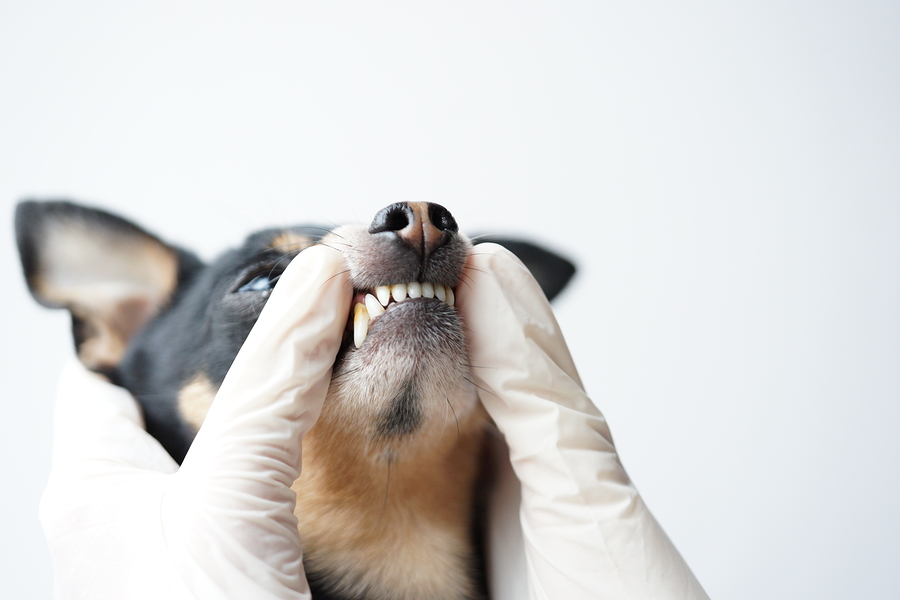
Your dog can identify you by your unique breath scent, which is as distinctive as a fingerprint. They can also pick up on traits like your age, diet, and gender through your scent.
Furthermore, your dog can sense your mood by detecting hormones and chemicals in your breath, helping them understand how you’re feeling and how to interact with you.
A Friendly Greeting
Sometimes, when your dog sniffs your breath, it’s just their way of saying hello. In the dog world, face-sniffing and nose-touching are common greetings that convey respect and submission. It’s a way of extending a warm, friendly “hi” and acknowledging your presence.
So, the next time your dog is up close and personal with your breath, remember that it’s their unique way of connecting with you, learning about their environment, and expressing their curiosity and affection.
Excitement
If you’ve established an enjoyable morning routine for your dog, such as treating them to a delicious meal or engaging in playtime, it can become something they eagerly anticipate. Dogs thrive on routines, and when it’s fun, they’re even more motivated to participate.
When your dog sniffs you in the morning, it’s their way of saying, “Come on, let’s get up and start our day!”
You can tell that your dog is excited about this routine if they exhibit the following behaviors:
- Barking.
- Cuddling.
- Wiggling.
- Tail wagging.
- Tongue hanging.
Dogs behavior
Your pooch’s instinctive move of sniffing your breath is deeply rooted in their canine nature. This behavior is a product of millennia of evolution and the unique way dogs perceive the world.
Dogs, as descendants of wolves, have an extraordinary sense of smell, far superior to that of humans. With over 300 million smell receptors and a significant portion of their brains dedicated to olfaction, dogs rely on their sense of smell to explore and understand their environment.
Missing your scent
When your pawed baby sniffs your breath, it’s a heartwarming sign that they are missing and yearning for your comforting scent. Dogs have an incredibly strong sense of smell, and they associate scents with their loved ones, especially their human family members.
Moreover, to your dog, your scent is like a warm and familiar hug. It carries information about you, your activities, and even your emotions. When they nuzzle close to your face and take in the aroma of your breath, it’s their way of feeling closer to you, even when you’re not physically present.
You encourage this behavior:
Your dog’s habit of sniffing you in the morning may be a behavior you inadvertently reinforced. Consider how you respond to this action. Do you simply ignore it, or do you engage with your dog, perhaps by cuddling them?
If your response is the latter, then you’ve essentially rewarded the behavior.
When you give your dog attention and affection in response to their morning sniffing, they interpret this as a positive outcome. Dogs thrive on positive reinforcement, and the attention they receive in this scenario makes them feel accomplished and satisfied.
As a result, your furry friend may continue to sniff you every morning because, from their perspective, they’ve done something right. They associate this behavior with the pleasurable experience of cuddling or receiving attention.
What to do about your dog sniffing your face?
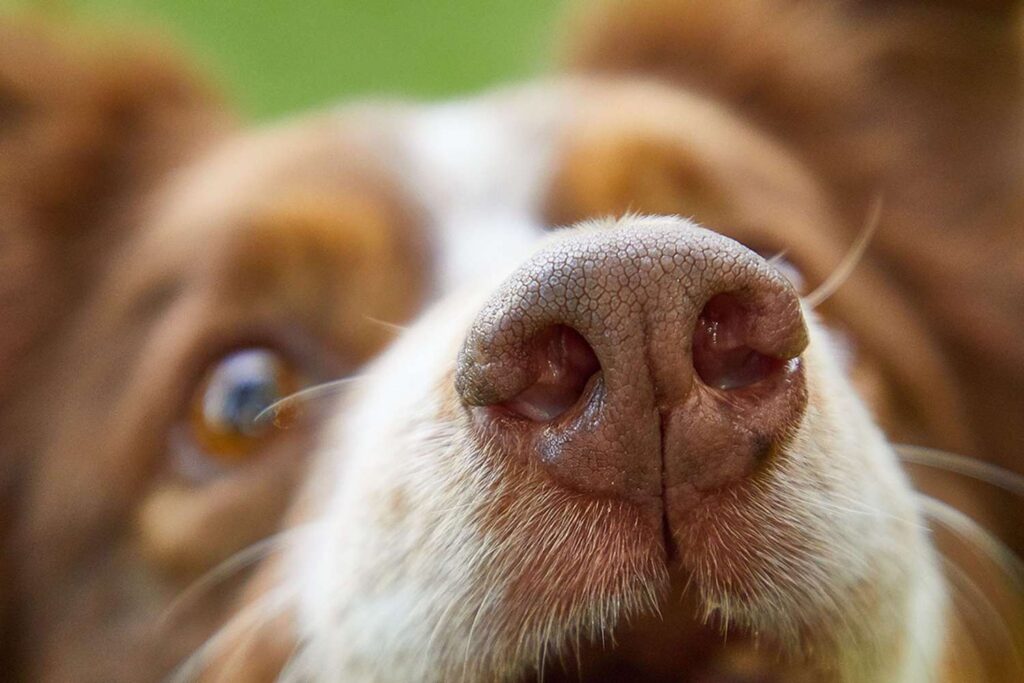
Observe Their Intentions: First, pay attention to your dog’s body language and the context in which they are sniffing your face. Are they doing it in a friendly and relaxed manner, or is it accompanied by signs of stress or anxiety? Understanding their intentions can help you address the behavior appropriately.
Set Boundaries: If it is becoming intrusive or bothersome, establish boundaries. Gently but firmly communicate that it’s not acceptable behavior by using a simple command like “No” or “Enough.” Be consistent in enforcing these boundaries.
Redirect Their Attention: When you notice your dog is about to sniff your face, redirect their attention to an appropriate behavior or activity. For example, you can offer them a toy or ask them to perform a simple command like “sit” or “stay” to shift their focus.
Positive Reinforcement: If your dog approaches your face calmly and you’re comfortable with it, you can use positive reinforcement to reward good behavior. Give them praise, pets, or a small treat when they interact with your face in a gentle and controlled manner.
Provide Mental and Physical Stimulation: Sometimes, excessive can be a result of boredom. Ensure your dog gets enough mental and physical exercise to keep them engaged and satisfied.
Consult a Professional: Overdoing becomes a concern, consider consulting a professional dog trainer or behaviorist. They can assess the behavior more comprehensively and provide tailored guidance.
Respect Their Communication: Remember that dogs use scent and body language to communicate. If your dog’s sniffing is a way of greeting you or checking on your well-being, consider it as a form of connection. In such cases, you can respond with affection and acknowledge their communication positively.
FAQs
Why do dogs push their nose into your face?
Dogs push their noses into your face as a way to communicate with humans since they can’t do it the same way they do with other dogs. It’s often a signal that they want your attention or need something from you.
Should you let a dog sniff you?
Yes, You can allow a dog to sniff you, as dogs have excellent senses of smell and can gather information this way. However, it’s essential to approach unknown dogs cautiously and let them initiate contact to avoid startling them.
Are dog licks really kisses?
Yes,Dog licks are often considered a sign of affection. Dogs use licking to communicate their love, and many people affectionately call them “kisses.” It’s a natural behavior for dogs and a way they express their emotions.
Why do dogs not like your face in their face?
Most dogs may not appreciate having a human’s face too close to theirs, as it can be uncomfortable and unexpected. Dogs have personal space boundaries, and they may react negatively to their faces being blown on or intruded upon closely.
Is it dirty to sleep with your dog?
No, Sleeping with your dog is generally safe and can even improve your sleep quality, as long as both you and your dog are healthy. However, it’s advisable to keep your dog out from under the covers for hygiene reasons.
Can dogs smell a woman’s period?
Yes, both dogs and cats can detect menstruation by odor and hormonal changes. They may not understand the concept but can sense that something is happening.
Do dogs like when you talk to them?
Yes, Puppies tend to respond positively to high-pitched, baby-talk-like speech, which may help them learn words. Older dogs may not show as much interest in this type of speech but still enjoy your company and communication.
What does it mean when your dog stares at you?
When your dog stares at you, it’s often a sign of affection and bonding. Mutual staring between dogs and humans can release oxytocin, fostering feelings of love and trust.
Can a dog be mad at you?
No, Dogs can feel upset or frustrated, but they don’t associate blame with their emotions. They experience feelings without holding grudges like humans do.
How long can a dog remember you? Dogs have short-term memory, allowing them to remember certain events for about 10 to 20 seconds.
Do dogs like the smell of their owners? Dogs find the smell of their owners Yes, comforting because it reminds them of their beloved pet parents, making them feel content and calm.
Conclusion:
To wrap up, when your dog sniffs your face, it’s a multi-faceted behavior rooted in their natural instincts and their unique way of communicating with humans. They may be seeking attention, expressing affection, or simply exploring the world around them.
Further, this nose-to-face interaction is a testament to the deep bond between dogs and their human companions, and understanding their motivations can enhance the connection and mutual understanding between you and your furry friend.







